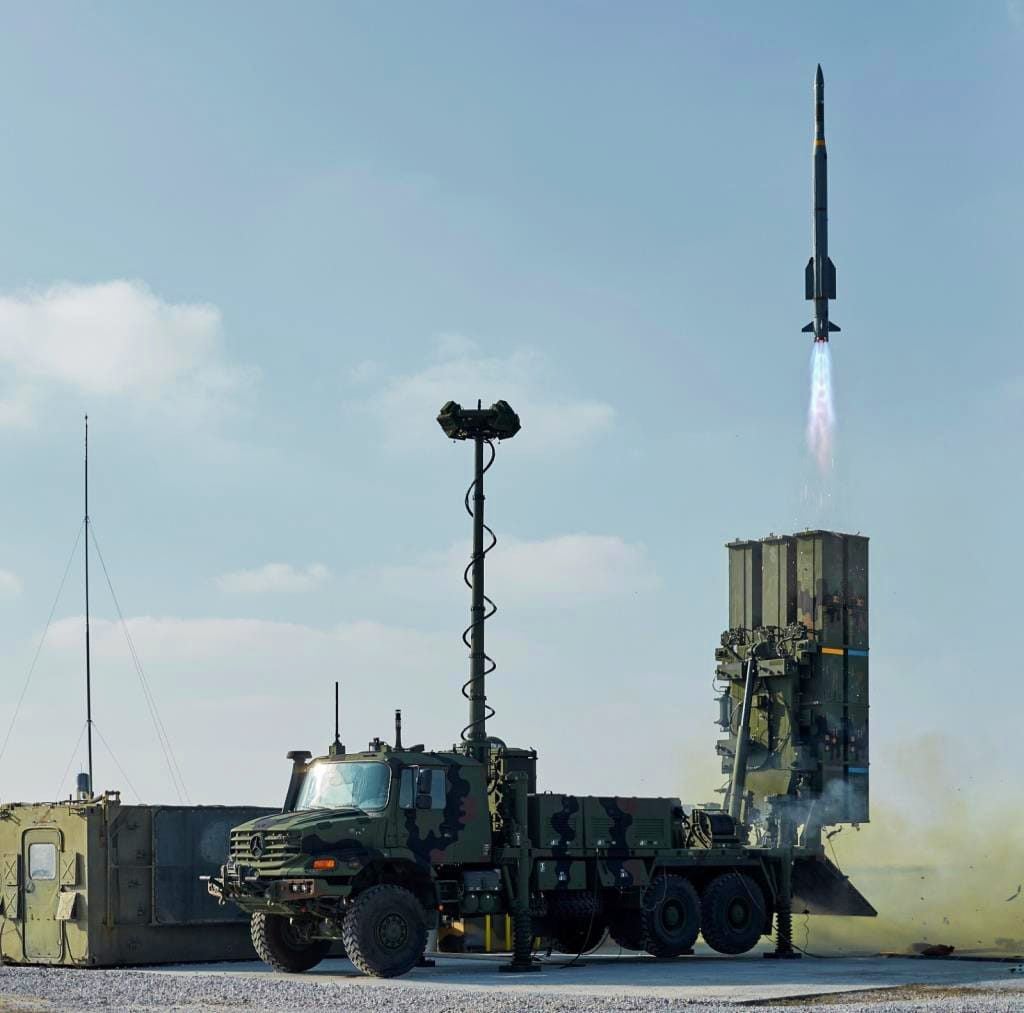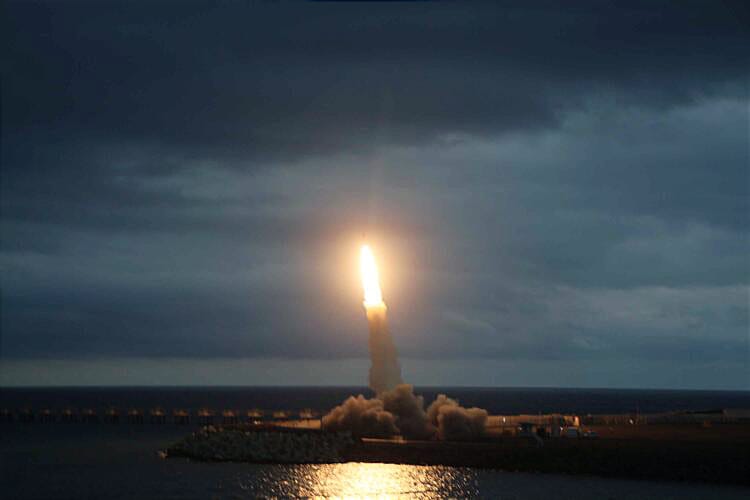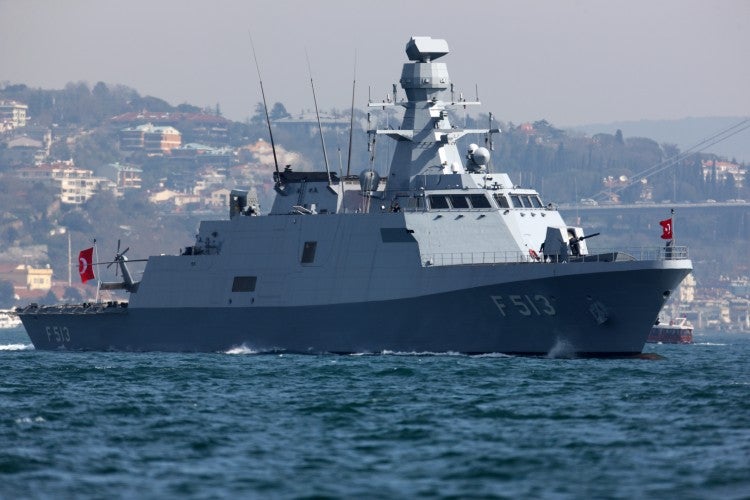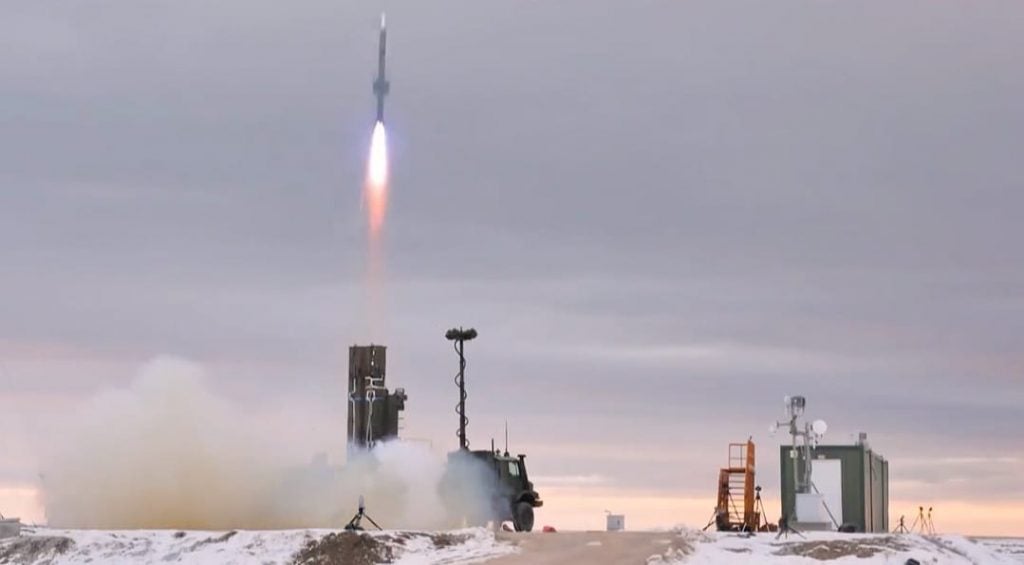Turkey Green-lights Production on 25 Different Projects Including the Tayfun Short-Range Ballistic Missile
On December 20, Turkey held its final Defense Industry Executive Committee (SSİK) meeting of the year. The meeting, which took place at The Presidential Complex and was presided over by Turkey’s President Recep Tayyip Erdoğan. Lasting around two hours, Erdoğan was joined by Vice President Fuat Oktay, Treasury and Finance Minister Nureddin Nebati, Interior Minister Süleyman Soylu, National Defense Minister Hulusi Akar, Industry and Technology Minister Mustafa Varank, Chief of General Staff Yaşar Güler, Defense Industry Agency President Prof. Dr. İsmail Demir, and other officials. The Republic of Turkey Directorate of Communications issued a written statement following the meeting. According to the statement, “at the meeting, issues related to adding new (systems) to our domestic and national systems used by the Turkish Armed Forces and security units were discussed, and decisions were taken regarding 25 different projects.”
Among the decisions made at the SSİK Meeting, the national air defense systems of Turkey came in first. In this circumstance, it was decided that the SİPER Long Range Air Defense System, developed in partnership with Roketsan, ASELSAN, and TÜBİTAK SAGE, would be put into mass production. The last test of the Siper system took place at the Sinop Test Center last August. During the test, the Air Defense System eliminated high-speed targets 100 km away. It was also decided at the meeting that Turkey would begin mass producing the HİSAR-O+ Medium Altitude Air Defense Missile System. At the start of this year, the Turkish Armed Forces received the system’s first prototype, which can engage at least nine different targets simultaneously at a range of more than 35 kilometers. The Hisar-A+, a variant of the system developed to meet low-altitude air defense needs, has been in use by the Turkish Armed Forces from 2021. Also being mass produced will be SUNGUR MANPADS, which were recently supplied to the Turkish Armed Forces.

Decisions about the mass production of missiles and frigates developed by the Turkish defense industry were also made at the meeting. The decision to start mass producing Tayfun, Turkey’s first ‘short-range ballistic missile’, was the most notable of these decisions. The TAYFUN Ballistic Missile, which successfully conducted its first test-fire at Rize-Artvin Airport last month, currently has a known range of 560 km. However, Turkish President Recep Tayyip Erdoğan claimed last week that the TAYFUN missile was on the verge of reaching a range of 1000 kilometers. Other missile systems that will enter mass production include the Atmaca anti-ship missile, the TRLG-230 new generation artillery missile, the Karaok short-range anti-tank weapon, and Turkey’s first air-to-air missiles, Gökdoğan and Bozdoğan. In addition, one of the products set for mass production is the Akya torpedo, which will improve the performance of Turkish submarines with a range of more than 50 kilometers.

The Defense Industry Executive Committee also decided to build three more İSTİF Class Frigates as part of Turkey’s MİLGEM Project. So far, four ADA Class Corvettes have been produced and delivered for the Turkish Navy as part of the ongoing project under the main contractor of STM. The TCG Heybeliada (F-511) was the first of these vessels to enter service, on September 27, 2011, followed by the TCG Büyükada (F-512) on September 27, 2013, the TCG Burgazada (F-513) on November 4, 2018, and the TCG Kınalıada (F-514) on September 29, 2019, all of which are now serving with the Turkish Naval Forces Command. Later, it was decided that the fifth ship to be built as part of the MİLGEM Project would be an İSTİF Class Frigate. The TCG ISTANBUL (F-515), the fifth ship in the MİLGEM project, is scheduled to be delivered to the Turkish Naval Forces Command next year. According to the decision made during the meeting, production of the project’s sixth, seventh, and eighth ships is scheduled to begin in 2023.

In addition, the Republic of Turkey Directorate of Communications stated, “The latest situation in Kızılelma, our unmanned jet fighter aircraft, was evaluated, and new capabilities for our UAVs were discussed. Decisions were also made on a variety of projects, such as the addition of new ones to the modernization of our F-16s, new electronic warfare and radar systems, various air, land and naval platforms, communication and information systems, equipment and gear, simulation, logistics and cyber security.” Finally, the statement concluded with, “The meeting emphasized that the development of all kinds of technology purchased from abroad in our country’s defense industry is an absolute necessity for a fully independent defense industry. Turkey will make a great leap forward in the defense industry, as in every field, and our determination in the design, development and production of domestic and national systems and technologies will continue regardless of all obstacles.”

